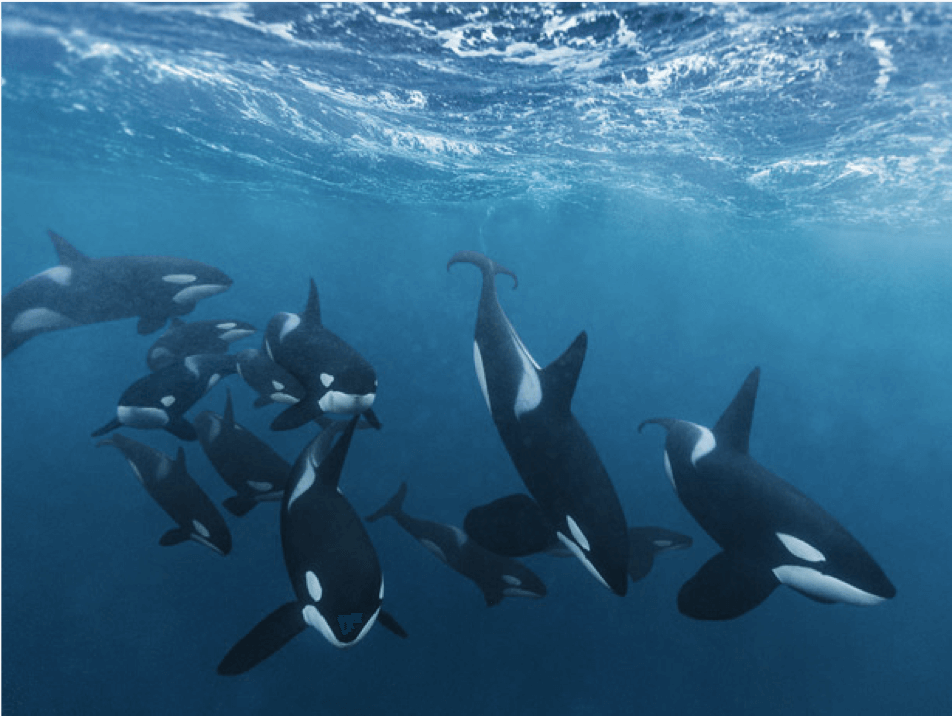Orca Whale (Orcinus Orca)

O.orca, an infamous species revered by most and feared by some. In my opinion, they are another iconic whale species! Many Americans may recognize orcas as the face of the amusement park franchise, Seaworld. At Seaworld, they train orcas to perform tricks. This may be a fond memory for people, but not for the orca whale. I try to keep my opinions out of this informational article, but please do not support orca whales through franchises like Seaworld. They did not need to be rescued. Their whales are snatched away as babies from their pod, and are kept in poor tanks and treated poorly. I strongly advocate for the closure of these parks and systems. If you are interested in helping whales and dolphins from the entertainment industry and others, there is this organization Sorry for rambling, here is some information!
Orca whales are technically considered dolphins. The taxonomy of whales and dolphins can sometimes be complicated, but if you would like I could explain it in a later article. Orcas form strong family bonds with their pods. Their pods are mainly matriarchal, with the older females being considered at the top. Family is very important to orca whales! Like humans, older orcas are responsible for teaching younger orcas certain things like hunting and even speaking!
That's right, orca whales are not born knowing how to communicate the proper way. They babble like babies and eventually have to refine their language through practice and teaching. Eventually, as they get older, they will be able to communicate like all the other orcas! Also, have you ever seen an orca whale slide up onto a beach and eat a seal? This is another trait taught to orca whales. An older orca whale will select a few daredevil calves, and they will practice together near the beach. The older orca will show them how to slide onto the beach, and how to wiggle their way back into the waves so that they can be carried out to sea. The calves that get nervous are able to drop out, the courageous ones will continue to practice before being able to catch their own seal!
Orca whales are seperated into resident and transient groups, and they have a few differences. Resident pods are usually bigger with 50+ whales, and they tend to be commonly sited in the same area. Transient orcas are smaller with around six whales, and like their name suggests, they tend to travel around more. They even have physical differences, with transient whales having a longer dorsal fin. Orcas are seen worldwide, and there are a diverse amount of apperances they can have based on what area they are from. There may even be different orca whale cultures, as their different calls and chatter differ depending on where they are from. In general, most orca whales eat seals, fish, and the calves of other whale species. They are very clever hunters, and are very intelligent! Their emotions are also complex, like all whales are.



Information from pages 264-287 of Handbook of Whales, Dolphins, and Porpoises of the World by Mark Cawardine. and also a few YouTube videos, and a PBS article!





